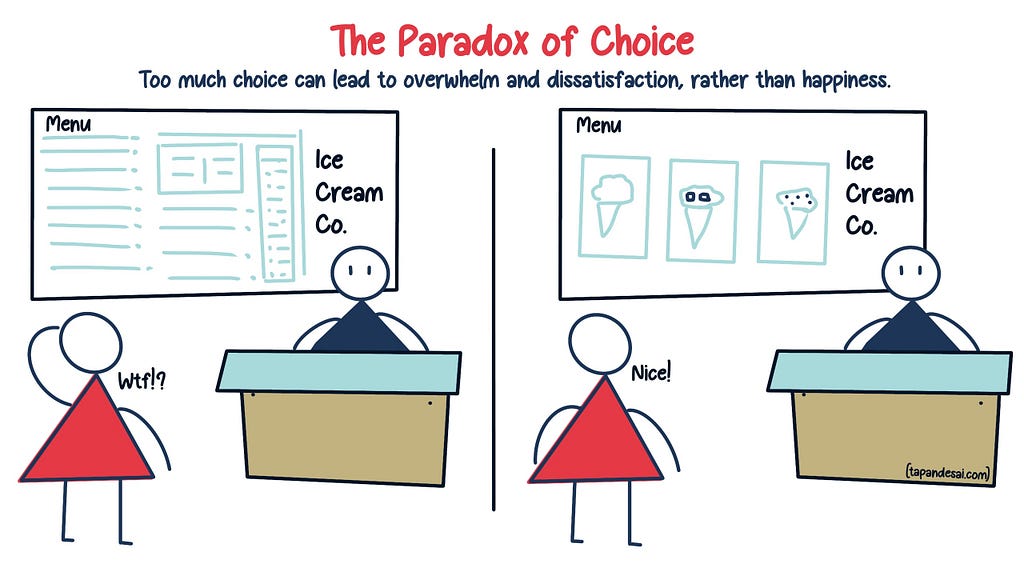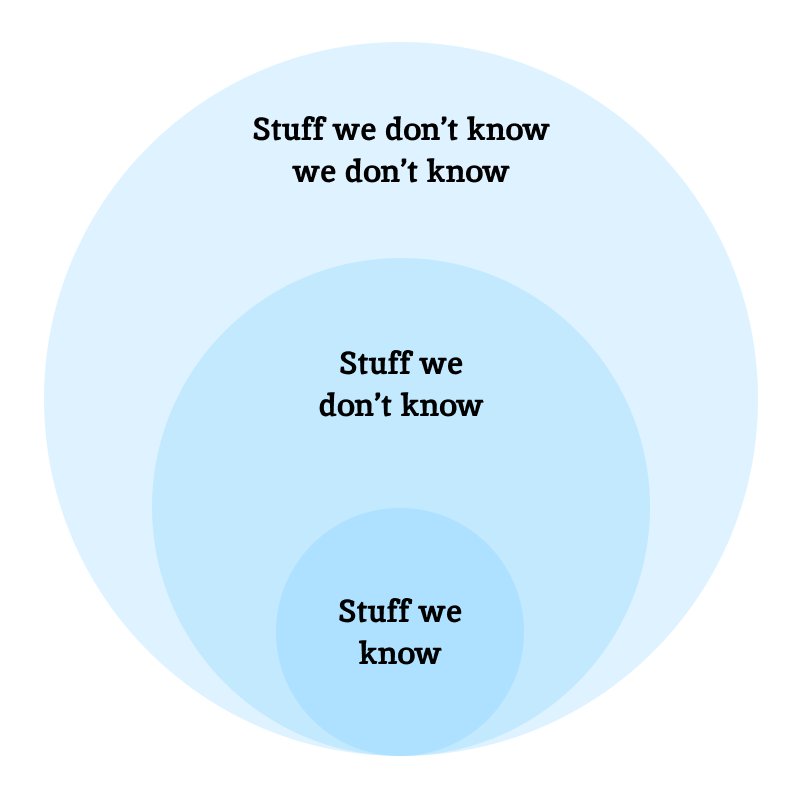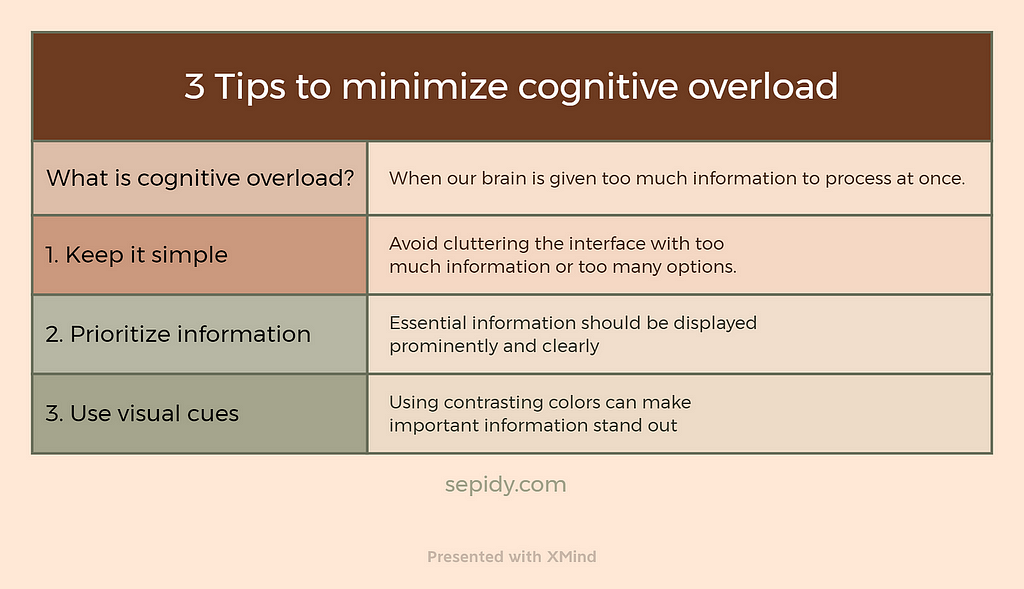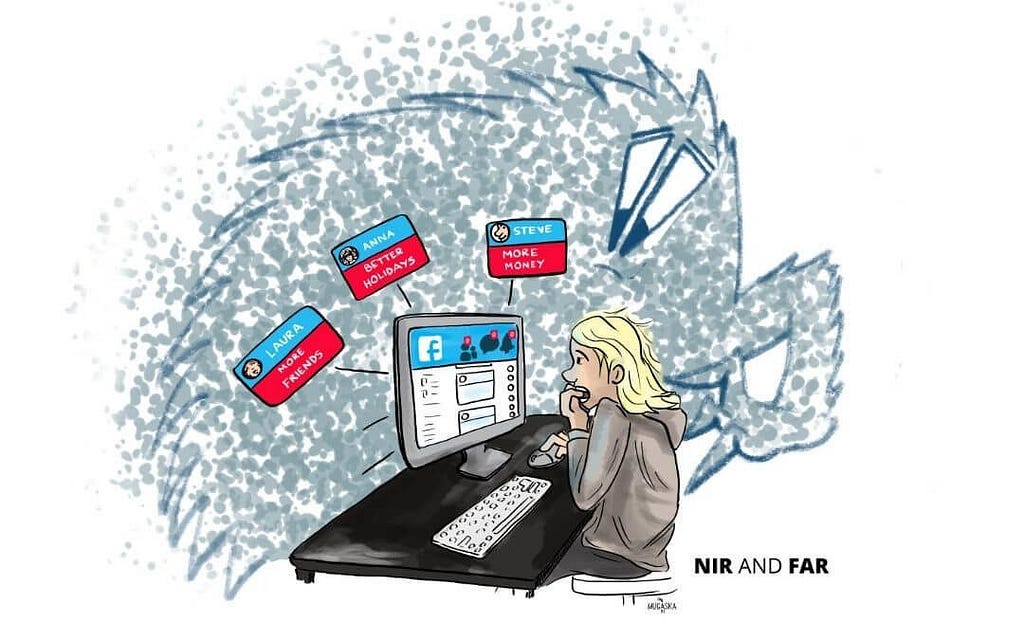
In the era of digital technology

Attention economy
Digital products are designed to capture and hold our attention, often at the expense of our time and focus. This is sometimes referred to as the “attention economy.” Features such as infinite scrolling, push notifications, and autoplay can keep users engaged for longer than they initially intended.


Paradox of choice
Digital marketplaces and streaming services offer an unprecedented array of choices. While this might seem beneficial, it can also lead to the paradox of choice, where the abundance of options leads to decision fatigue, dissatisfaction, and regret.


Echo chambers
Many digital products use algorithms to personalize the content we see based on our past behavior. While this can make information consumption more efficient, it can also create echo chambers, where we are exposed only to viewpoints and information that reinforce our existing beliefs. This can limit critical thinking and exposure to diverse perspectives, potentially polarizing public opinion.


Information overload
The vast amount of information available at our fingertips can lead to information overload, making it difficult to filter, prioritize, and remember information. This can impact users’ ability to make decisions and can increase stress levels.


Dopamine feedback loops
Social media platforms, video games, and even email notifications can create dopamine-driven feedback loops. When users receive likes, comments, or any form of positive reinforcement through these platforms, it triggers the release of dopamine, a neurotransmitter associated with pleasure. This can lead to users repeatedly checking these platforms to experience that pleasurable feeling again, potentially leading to addictive behaviors.


Social comparison and identity
Social media platforms can exacerbate feelings of inadequacy and envy through constant exposure to curated portrayals of others’ lives. This phenomenon, known as social comparison, can lead to decreased self-esteem and increased feelings of loneliness and anxiety.
Online platforms allow for the creation of virtual personas, which can differ significantly from an individual’s offline identity. This can have complex effects on self-perception and identity, as the boundaries between online and offline selves blur. While offering opportunities for exploration and expression, this can also lead to conflicts and confusion about one’s identity.


Google effect
The ease of accessing information online can affect our memory and navigation skills. The phenomenon known as the “Google effect” or digital amnesia describes how the internet has become a form of external memory, leading to a decrease in the ability to remember information. Similarly, reliance on GPS for navigation can impact spatial navigation skills.

Digital empathy and connection
While digital communication platforms have enabled new forms of social interaction and connection, they can also impact the quality of these interactions. The lack of non-verbal cues in text-based communication can lead to misunderstandings and a reduction in empathy.

Online disinhibition effect
The anonymity and physical distance provided by digital interactions can lead to the online disinhibition effect, where individuals feel more free to express themselves in ways they might not in face-to-face settings. This can manifest in both positive ways, such as increased openness and self-disclosure, and negative ways, such as cyberbullying and aggressive behaviors.

Fear of Missing Out (FOMO)
Digital platforms, especially social media, can exacerbate the fear of missing out — the idea that others might be having rewarding experiences. FOMO can lead to constant checking of social media feeds and can negatively impact mental health and well-being by promoting feelings of inferiority and dissatisfaction.

Want To Master Product Design?
Try Interaction Design Foundation. It offers online design courses that cover the entire spectrum of product design, from foundational to advanced level.
This post contains affiliate link(s)
10 Psychological Facts About Human Behavior was originally published in UX Planet on Medium, where people are continuing the conversation by highlighting and responding to this story.